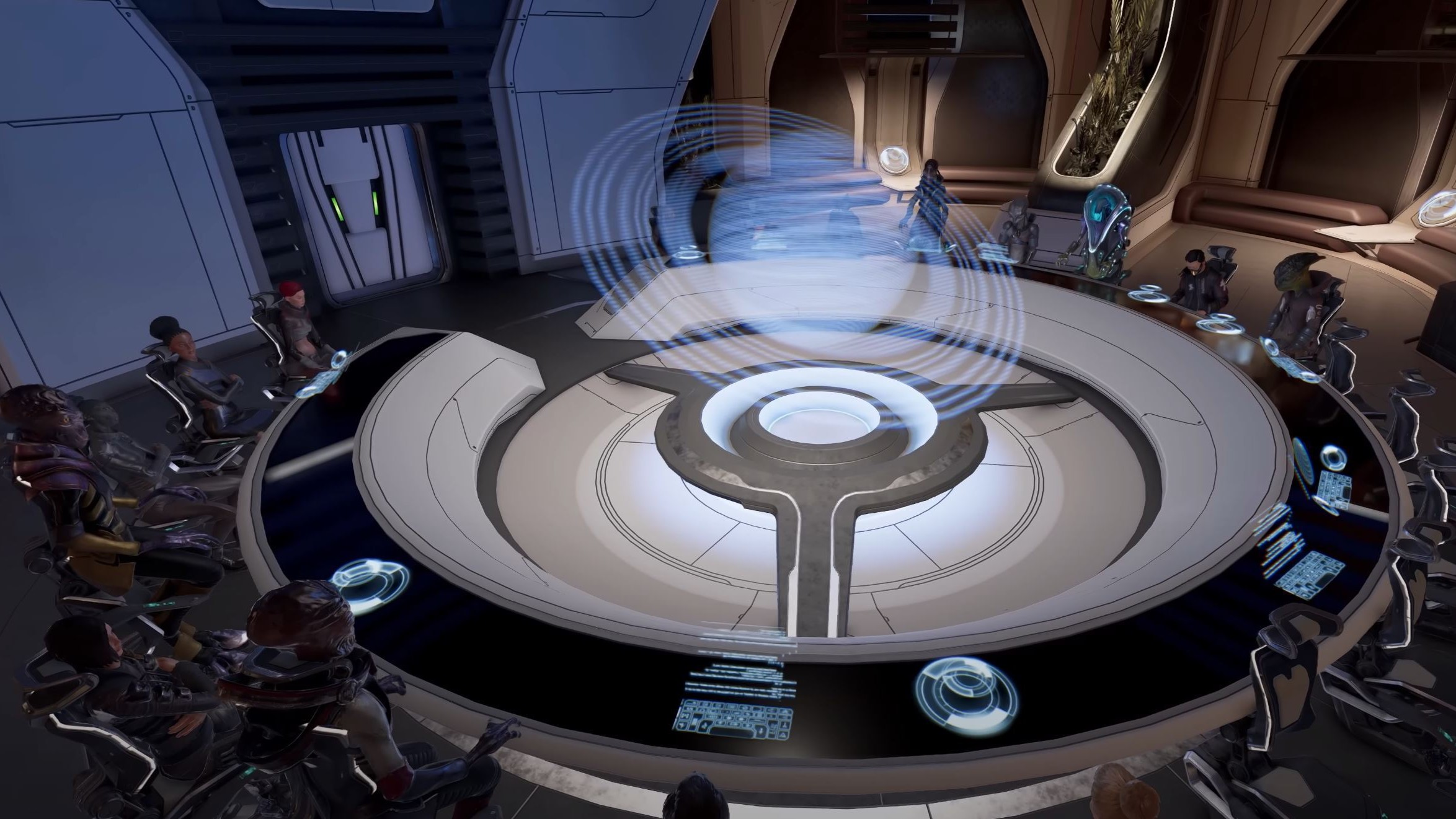
While not as flashy as Star Citizen or as popular as No Man's Sky, X4: Foundations is one of the most comprehensive space sims you can play today. Representing a return to form after the failed experiment that was X: Rebirth, X4 continues the series tradition of offering a preposterously detailed simulation of space—featuring trading, combat, space exploration, and dynamic faction politics—while also letting players build and expand their own interstellar empire.
X4 can be a hugely rewarding experience, provided you can handle its vertiginous learning curve and millions of menus. The space sim has quietly trundled along with a small but dedicated community for years now. But its latest update caught my eye. Patch 8.00 introduces a detailed diplomacy system to the sequel, letting you liaise with the universe's many alien factions, mess with inter-faction relationships to your advantage, and conduct daring espionage operations, essentially adding a slice of Crusader Kings to your adventures through the void.
Described as a "deeply integrated new gameplay feature" by developer Egosoft, X4's diplomacy system is built around three key components. At its heart is the embassy room, where ambassadors from across the galaxy gather to entreat with you around an actual round table.
The embassy room can be unlocked and constructed at your player headquarters. Once unlocked, you can invite other factions to send representatives to your embassy, though you can only do this if you have a friendly (or better) relationship with that faction. I like this physical representation of something that could easily be confined to a menu, though it seems these representatives function mainly as a quick access to the relevant faction menu, so it isn't quite as simple as it appears.
As well as interacting with factions directly, you can also manipulate them behind their backs through espionage. The diplomacy update introduces agents, recruitable NPCs who can serve both as negotiators and spies. Agents can be given their own ship and dispatched on a variety of missions, including spying on enemy ships, stealing valuable blueprints from other factions, and initiating "diplomatic interference".
What is diplomatic interference? Well, it lets you trigger diplomatic incidents and then influence them to your advantage, altering relationships between factions and improving your own position as a result. Depending on the current standing between the relevant factions, you can wade into trade disputes, arbitrate peace talks, manage territorial claims, and deal with cyber attacks and accusations of espionage. The results of your interference may result in changes to resource claims, redrawn borders, altered alliances, and even wars.
Egosoft describes diplomatic interference as "the most game changing element" of the update. "Changes in faction relations can have an extraordinary impact on the galaxy, as alliances, trade partners and supply chains shift." The big question, of course, is how well all this works with the rest of X4's voluminous network of systems. Recent Steam reviews are slightly less positive than the overall rating (76% versus 78%). But they don't say much about the diplomacy system one way or the other. At least nobody is complaining, I suppose.
Keep up to date with the most important stories and the best deals, as picked by the PC Gamer team.
The diplomacy update is available now. The free update coincides with the release of X4's Envoy Pack. This paid DLC introduces a "stealth-ready" frigate perfect for spies and sneaky negotiators, as well as a new mission chain, a new game-start that throws you right into that storyline, and an extra space sector. The Envoy Pack is available for $8 (£7).
2025 games: This year's upcoming releases
Best PC games: Our all-time favorites
Free PC games: Freebie fest
Best FPS games: Finest gunplay
Best RPGs: Grand adventures
Best co-op games: Better together
Rick has been fascinated by PC gaming since he was seven years old, when he used to sneak into his dad's home office for covert sessions of Doom. He grew up on a diet of similarly unsuitable games, with favourites including Quake, Thief, Half-Life and Deus Ex. Between 2013 and 2022, Rick was games editor of Custom PC magazine and associated website bit-tech.net. But he's always kept one foot in freelance games journalism, writing for publications like Edge, Eurogamer, the Guardian and, naturally, PC Gamer. While he'll play anything that can be controlled with a keyboard and mouse, he has a particular passion for first-person shooters and immersive sims.
You must confirm your public display name before commenting
Please logout and then login again, you will then be prompted to enter your display name.



